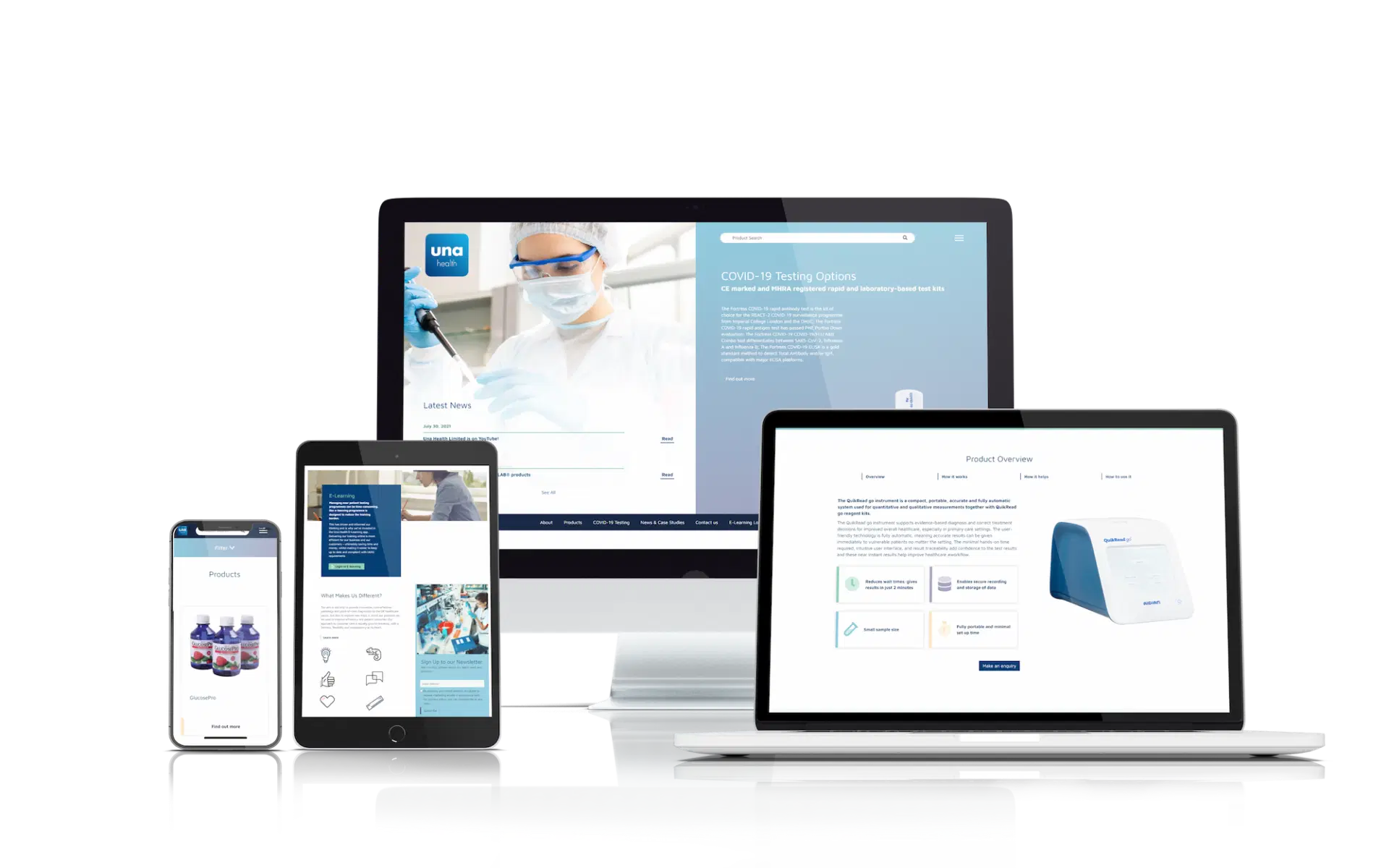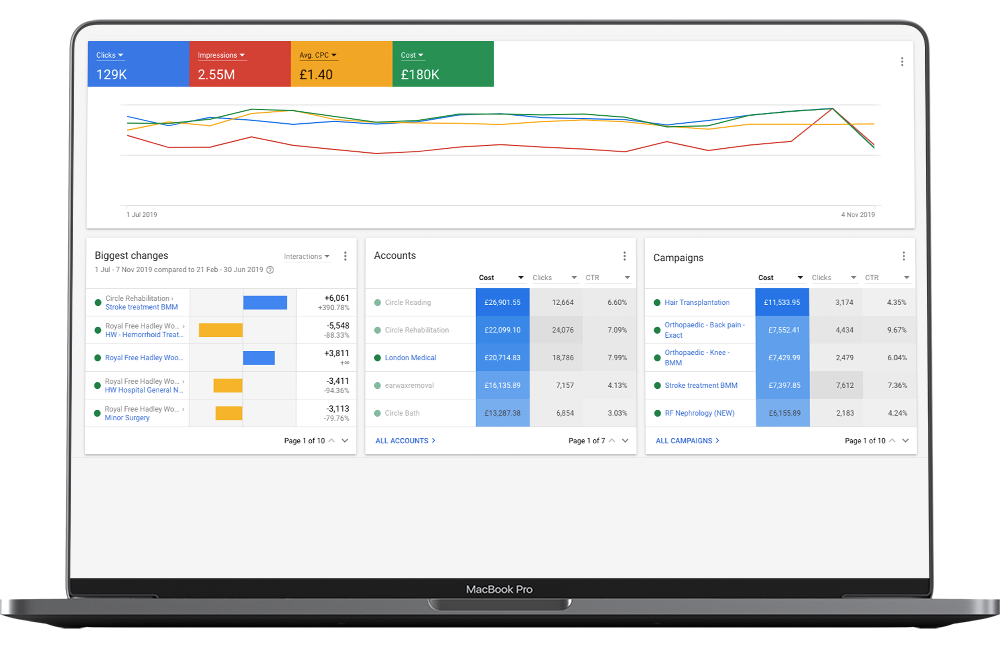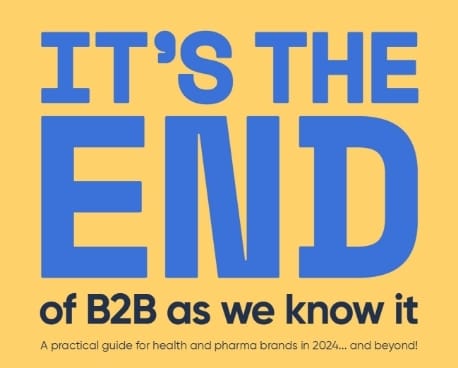How to educate and engage HCPs online
Healthcare professionals are really busy people! Reaching them online with timely, relevant messages can be a real challenge for medical and pharmaceutical organisations. And this has become even more challenging over the past couple of years with the pandemic forcing in-person interactions online.
Although people are starting to embrace face-to-face engagement again, having a digital presence is key. And with almost 70% of HCPs being digital natives, how can you capture attention through digital channels with engaging and educational content?
The answer is to develop a robust business-to-business (B2B) digital marketing strategy which aligns with the motivations and behaviours of HCPs.
In this blog post, we’ll explore the bare minimum you should be doing to excel with your digital marketing strategy. We’ll also demonstrate the key areas to focus on if you want to market to HCPs using impactful, omnichannel campaigns that deliver results.
Why use digital marketing?
HCPs are “more digitally savvy than ever” reported PharmaExec earlier this year, with more than 77% of HCPs using digital channels for learning and development, and 68% taking advantage of webinars and webcasts to access information.
There are so many good reasons for using digital marketing to educate and engage HCPs online. Let’s take a look at why having a digital marketing presence is key:
Reach HCPs across their buying journey
Digital marketing strategies allow marketers to reach HCPs at whatever stage of the buying cycle they are at. From brand awareness to lead generation to retention and loyalty, digital strategies can be deployed through the marketing funnel.
It’s cost-effective
Digital marketing is one of the most cost-effective ways to get your brand in front of your target audience fast. Having a website, using social media, email marketing and paid ads combined with a content strategy are all great strategies to make a difference in how your organisation is found and seen online.
It’s measurable
Digital marketing makes it so much easier to measure return on investment (ROI) and attribute marketing effort to revenue. You can literally measure everything — email open rates, click rates, page views on your website, click-throughs, product orders, whitepaper downloads and webinar attendances. Everything has the ability to be measured, tracked, tested and, ultimately, optimised for success.
Laser-targeted options
It’s easier than ever to target your ideal audience or specific buyer personas with relevant, timely content and offers. Platforms such as LinkedIn allow users to create matched audiences so your ads reach the people most likely to engage. And laser-targeted criteria on platforms such as Facebook mean you can reach your audience where they are online.
To summarise, if you’re not using digital marketing as part of your business strategy then you’re missing out. Let’s explore how we can use digital marketing to specifically reach healthcare professionals online. Our expertise in this industry means we are uniquely positioned to provide insights based on real-world experience.
How to use digital marketing to reach HCPs
There are lots of ways you can use digital marketing to reach healthcare professionals online. We run through six of the key strategies for ensuring maximum reach and engagement. And if you’re not sure where to start? Drop us an email or give us a call and we’d love to talk through your HCP engagement strategy further.
Optimise your website
Your website is arguably your number one digital marketing asset, with almost three-quarters of HCPs visiting independent websites and a quarter visiting product websites each week.
When a healthcare professional visits your website, they expect it to be easy to use, providing them with the information they need, fast. It’s the first impression visitors get when researching your organisation online. There’s no “one size fits all” approach to healthcare sector websites. Key things to consider include:
- User-friendly interfaces that look great across multiple devices and browsers (including those typically used in primary and acute care settings).
- Intuitive design to guide users to the information they need. The key to this is understanding the different goals and motivations of your target HCP audiences.
- Data visualization to capture a visitor’s attention and highlight key insights and demonstrate complex products.
- Navigation experiences for HCPs vs patients. If your site speaks to both audiences, you may want to consider separate navigation options.
- Searchability. If you have a content or product-heavy website, offering search functionality will be vital for keeping users on your site. If it takes too long to get the info they need, they’ll look elsewhere.
- Site speed. Consider how fast your pages loads. Website performance is key to providing a great user experience. If your site is slow, people will click away.

Keep in mind though that a website isn’t a one-off project that can then be forgotten. It’s an evolving asset which can be made to work for you from brand awareness and lead generation to education on advances in medicine and technology. It’s worth spending time and money to get your website up to scratch, ensuring that it has your audience front of mind. Consider working with an agency that has experience creating first-class digital customer experiences for HCPs.
Content marketing
They say content is king, and it really is when trying to grab the attention of busy healthcare professionals. The key to creating great content is understanding your audience’s mindset. What are their goals and motivations, how do they consume healthcare information and where do they typically interact online?
Crafting detailed buyer personas or buyer journeys for HCPs will give you the insight to drive your content strategy. According to McKinsey, “nearly 40% of pharma companies admit they do not understand these journeys well enough to map digital touchpoints and align them with their digital strategy”.
If you consider your potential customers, a member of the procurement team is more likely to be interested in stock levels and availability, compared with a clinician who probably wants to explore product benefits and patient outcomes.
Once you have your audience defined, you can test different content formats to determine engagement and also the performance of channels where you deliver content. Over time, this will lead to more impactful marketing campaigns that get results.
SEO
You have a website and you’ve got some content but is anyone actually finding it? This is where search engine optimisation comes into play. SEO is a continual process of developing content that ranks, ensuring your website is found online.
Remember that not all searches are equal and the way a clinician searches for a topic will vary greatly from how a patient searches. It’s vital that you work with an agency that’s able to differentiate between informational patient searches, vs. technical clinician searches.
For example, patients typically search for symptoms and treatments, using colloquial and conversational words. HCPs are more likely to use medical or technical terminology and conduct long-tail searches (more than three words). And they’re more likely to search using brand and product names which may be less well known amongst patients.
We dig into more detail on the importance of SEO in reaching healthcare professionals in this blog post.
Paid advertising
Using paid online advertising is a quick way to elevate your brand and messaging. There are many pay-per-click (PPC) strategies you can use, with the most popular being paid search, paid display and paid social ads. And with average paid search conversion rates over 5%, it’s no surprise that digital ad spending continues to rocket in the healthcare sector.
As with all marketing activity, start with your audience profiles or buyer personas to inform your ad messaging and creatives. Who will see these ads and what do these people care about? For example, if advertising to both acute and non-acute audiences, you’ll want to personalise copy and imagery so it’s as relevant as possible to both audience groups. Make sure calls to action are clear and concise and make sense based on the ad copy and creative.
The great thing about PPC is that there are ample opportunities for niche targeting, retargeting, testing and optimising.

Organic social media
With over 50 million HCPs using social media platforms worldwide, organic social media shouldn’t be overlooked as a strategy. It certainly isn’t a guarantee for generating leads but it can be useful for overall brand awareness. The key is to be consistent, and post engaging, helpful content that your target audience will come back for.
It’s important not to try to do everything though. We know that LinkedIn is a great platform for B2B marketing, but what other social platforms prove popular with your target audience? Again, consider your buyer personas and these should guide you to the most effective platforms to try. Particular specialities may prefer to use one platform over another. For example, an evidence-based nursing journal club, run by BMJ for Nursing, regularly uses Twitter to host chats, initiate discussion, share experiences and discuss research.
Don’t forget HCP-specific social platforms such as Sermo and Doximity. In the 2022 Healthcare Professionals Communications Report by Healthlink Dimensions, Doximity came top in terms of the social network of choice amongst HCPs. Perhaps surprisingly, Facebook came second.
Keep in mind that millennial HCPs spend around 3 hours a day on social, search and news websites for work-related information. And for the majority that will be outside of working hours. Consider which platforms younger HCPs engage with and don’t be afraid to try them.
Email marketing
The HealthLink Dimensions survey found that a staggering 65% of HCPs prefer email over any other form of marketing! And with email being such a scalable and cost-effective method, it’s definitely not a strategy to overlook.
Email allows you to target specific audience segments with personalised messaging. From e-newsletters, one-off campaigns or specific nurture paths, email is easy to track and provides excellent ROI opportunities.
In Conclusion
The pandemic was the catalyst for driving digital transformation, and organisations not yet embracing digital marketing strategies will get left behind. The best healthcare marketing agencies will help you navigate and keep ahead of the curve. Speak to us today to find out how we can help you educate and engage HCPs online.






